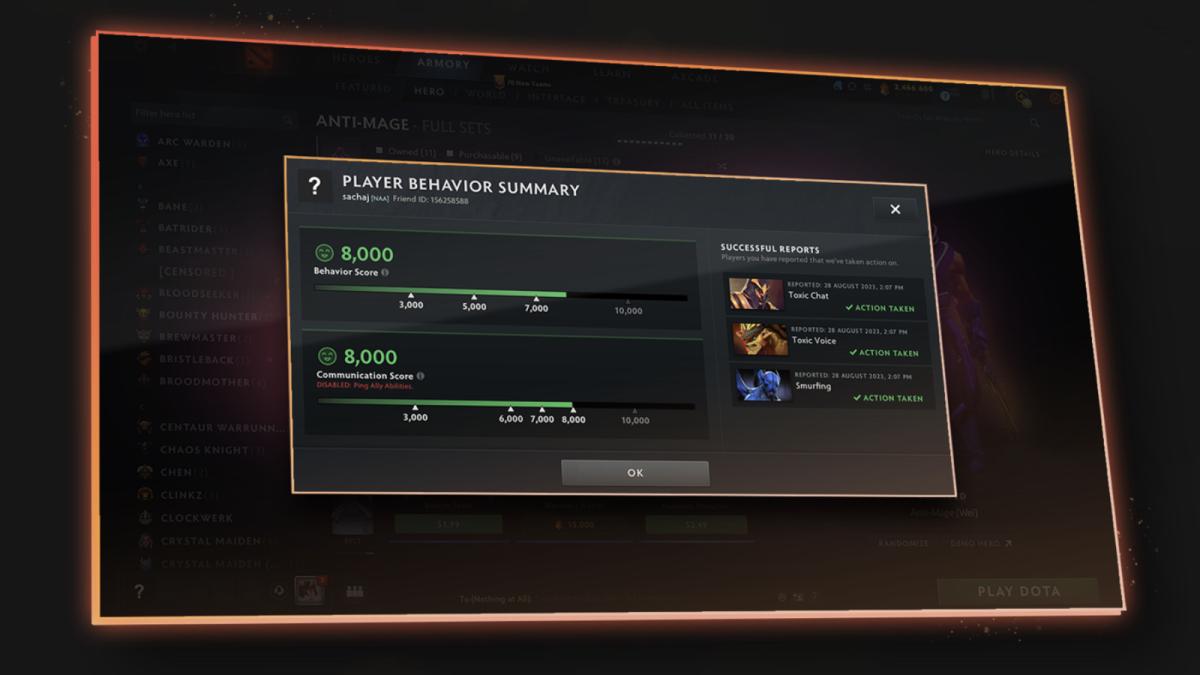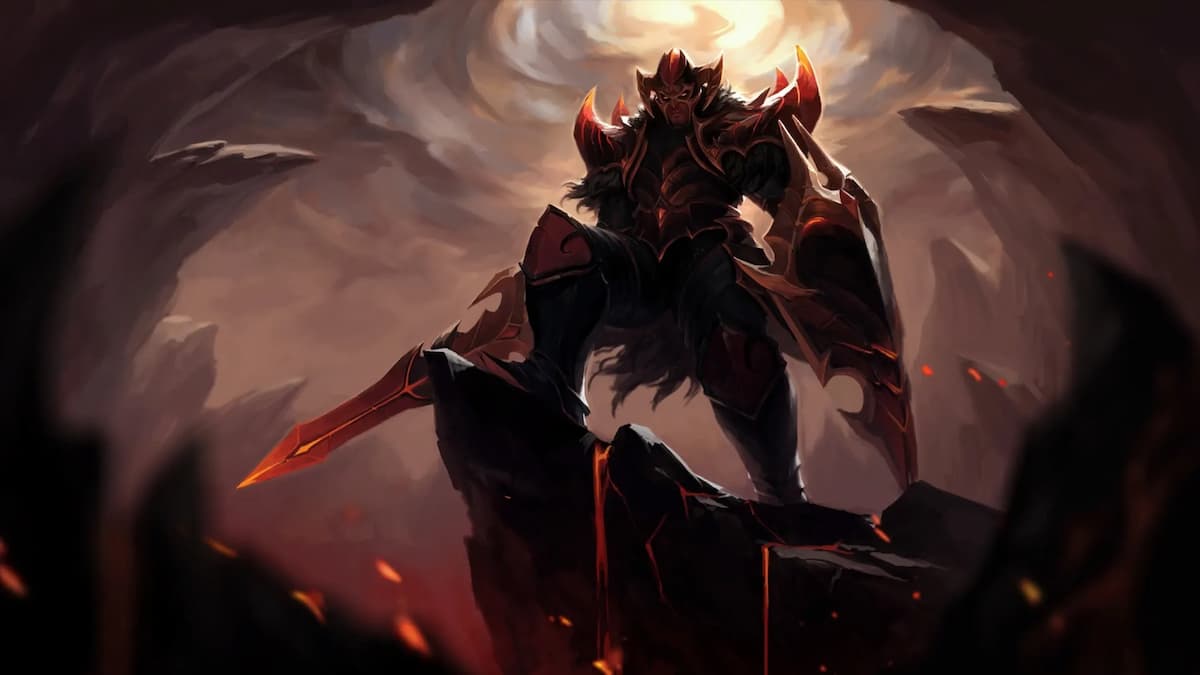For years, Dota 2 players have had a behavior score associated with their accounts. It is shown as a number between zero and 10,000 on a conduct summary report every 15 games, and factors in things like how many times they’ve been reported for disruptive gameplay or abusive communication, how many times they’ve abandoned a game, and so on.
But while this system has been in place for a long time, Valve decided to revamp it in the Summer Client Update.
Not only did they increase the maximum score to 12,000 and add harsher punishments for players with low scores like stopping them from playing ranked, they also added an entirely new score, a communication score, that functions separately.
Communication score in Dota 2, explained
A player’s communication score in Dota 2 reflects the quality of their in-game chat and speech interactions. It’s different from their behavior score, and caps out at 12,000 points.
The lower a communication score is based on reports, the more limited their communication options will be. A player with a low score won’t be able to ping the map or allies, tip allies or enemies, or even coach other players.
If it drops even lower, they will be muted and won’t be able to communicate with others via chat or microphone until it increases.
Players can report others at anytime during or after a game. There’s also no limit to how many reports they can do. If someone is reported, the chat log will be analyzed in real-time, and if they’re found to be toxic, they’ll automatically be muted for the rest of the game.
Related: Dota 2 pros are forcing this popular support into the mid lane—and it’s working
Valve said the new system (including communication scores) will be more conservative in its decision-making process early on. However, once more data is accrued over time, it will become more accurate.












Published: Aug 30, 2023 09:36 pm